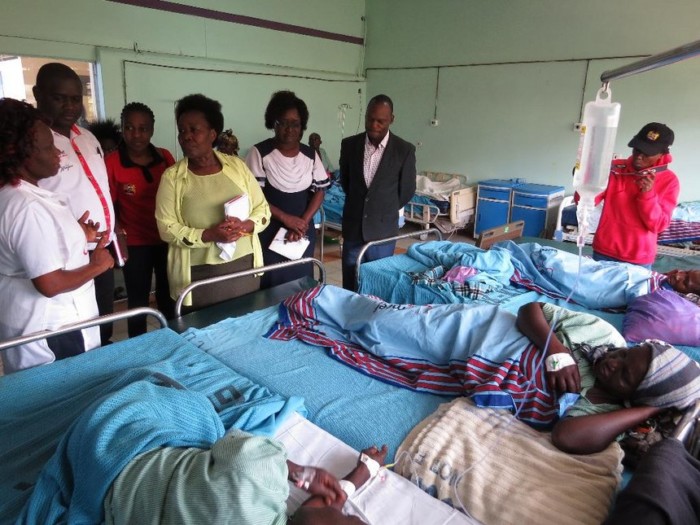
Mombasa,KENYA:Mombasa County is among six counties set to receive Fistula camp services by Amref Health Africa which aims in screening and offering surgical treatment for women with obstetric fistula.
Obstetric fistula is a complication that can affect any woman or girl who suffers from prolonged or obstructed labour without timely access to an emergency Cesarean section. The result is the woman leaking urine and/or stool through the vagina.
Speaking during the ceremony, Amref Health Africa in Kenya’s Programme Director for Health Systems Strengthening Dr Elizabeth Wala said, Obstetric fistula is a treatable and preventable condition that mainly affects poor women in under-resourced regions.
“Amref Heath Africa in Kenya works to treat fistula through special free surgery camps across the country. It costs sh. 50,000 to perform reconstructive surgery for one woman,” Said Wala.
Amref in partnership with various County Governments will be running similar fistula camps in Garissa, Marsabit, Turkana, West Pokot, Siaya, Makueni and Mombasa Counties in 2018.
Established in 1992, Amref Health Africa’s Obstetric Fistula programme, aims at improving the quality of life for women with debilitating childbirth injuries through surgical interventions and community interventions to prevent Obstetric Fistula.
Since its inception, the programme has been involved in large scale surgical interventions targeting women and girls with obstetric fistula. The programme trains doctors, nurses and midwives in Obstetric Fistula awareness, prevention, surgical repair and post-operative care. This has seen an increase in the demand for operations.
Obstetric Fistula is mostly as a result of prolonged difficult labour coupled with lack of skilled medical care, and usually leads to permanent incontinence – a continuous leakage of urine and/or stool and loss of control of bowel movements.
These women are often abandoned by their husbands and ostracized by their families and communities.
It is estimated that two women get obstetric fistula per 1,000 births giving a total of 2,400 new cases per year. However, current capacity for fistula repair services in Kenya is less than 1,000 patients every year or less than 50 per cent of the estimated annual incidence.
Kenya is in dire need of medical personnel trained in fistula prevention, care, and treatment.












